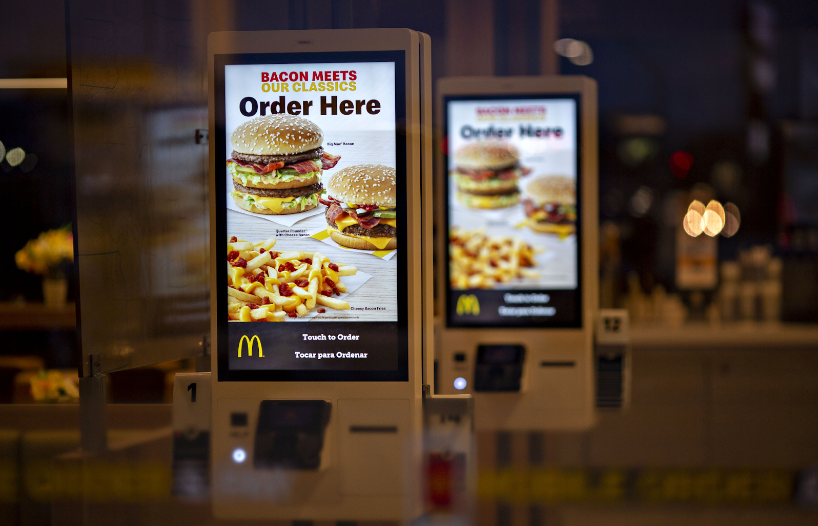Inflation instigator or savior of the working class?
By: Gordon Miller
As the American economy continues its steady growth, the question of how to close the ever-growing wealth gap is of growing importance. California’s new $20 fast-food minimum wage law is one potential answer. Signed into law by Governor Gavin Newsom last September, Assembly Bill AB1228 promises to be many things. Most notably, it raises the minimum wage of all fast-food employees to $20 an hour, a 25% increase. It also gives the state of California the power to initiate additional annual increases of up to 3.5%.
Supporters of the bill, most notably fast-food employees, praise the needed rise in income amid ever-increasing rent and grocery prices. Indeed, wage increases are an essential tool to bring relative costs down and income up, especially considering the deflation of prices to pre-pandemic levels is a virtual impossibility. The bill’s positive effects are also not limited to the fast food industry. As fast-food workers are paid more, employers outside the industry will also be forced to increase their wages to remain competitive within the limited labor pool. Undoubtedly, the wages of low-income workers across California will increase. With more disposable income, the money will go back into the economy. Even the fast-food company will benefit as consumers have more disposable income to spend on their products.
The opposite is said by the bill’s harshest critics, fast-food executives. The bulk of the bill’s coverage consists of warnings of inflation from news outlets and vague threats of unemployment from business executives. They treat price hikes and loss of employment not only as an inevitability but a deserving punishment for attempts at changing the status quo. “We know we have to take something as a significant increase [of prices] when you talk about a 20%-ish increase in wages,” said Chipotle’s chief financial and administrative officer, Jack Hartung, who took home nearly $6 million in 2022. Such statements not only aim to absolve the executive of guilt but oversimplify the issue to a single cause-and-effect relationship: an increase in wages must result in increased prices, the hastening of automation, and mass unemployment. Underlying this conclusion is the understanding that the free market will cancel out any legislative change. The fast-food company is the victim and the employee is the greedy urchin, begging for more than they are owed and being rightfully punished for it.
This oversimplified conclusion must be dispelled to truly confront the bill, its flaws, and its benefits. Take automation, a common fear of California’s new minimum wage. Critics argue that businesses will be encouraged to lower the number of employees and bridge the gap with machines. The fear of automation is real but is not caused by wage increases. If these companies had the means to replace workers with machines, they would have already done so. The money lost from a four-dollar increase in wages will always be insignificant compared to the money saved by eliminating an employee.
The bill’s most common criticism is that of price increases, arguing that the average Californian will be poorer after their wages increase because of the vastly higher pricing of fast food. This argument minimizes all factors contributing to price increases while exaggerating the bill’s role. Factors like inflation, supply chain issues, and the lasting effects of the COVID-19 pandemic on workers all pail in comparison to the effects of paying workers a higher wage. They exist but only in the context of wage increases exacerbating them.
This is most evident in the vast price increases before California’s new minimum wage, the worst offender being McDonald’s, which roughly doubled its 2014 prices—reporting record profits. Fast-food companies have never needed a wage increase to justify price hikes, so now to argue they are the sole cause is nothing but a fear tactic.

A graph of price increases at the top fast-food companies from 2014-2024
Yet, to argue that the bill will not result in price increases too is disingenuous, as inevitably, prices will rise. A side-by-side comparison done earlier this month found that prices at major fast-food chains had already risen in California by upwards of 7%. The fallacy is not prices increasing but the root cause of these increases. Prices have been rising exponentially for the past 10 years, not because of constant wage increases but because of the company’s need for exponential growth in an environment where most possible consumers are already buying. The cessation of wage increases will not stop the rapid increase in the cost of fast food and other goods but will remove an essential tool to guarantee the well-being of workers.
The bill is essential for the roughly 550,000 workers directly affected by the new minimum wage. With the ever-rising cost of living, workers need ever-rising wages. The bill means not only more money to spend and invest back into the economy through higher consumption but also a higher quality of life for these workers. The effects are not limited to fast food, as businesses outside the industry will be forced to raise wages to remain competitive—no change exists in a vacuum, a positive and a negative when it comes to such a large increase. While the bill will not go without friction, it is still a step in the right direction, a step which must be taken again and again across America if lasting change is to be made.



